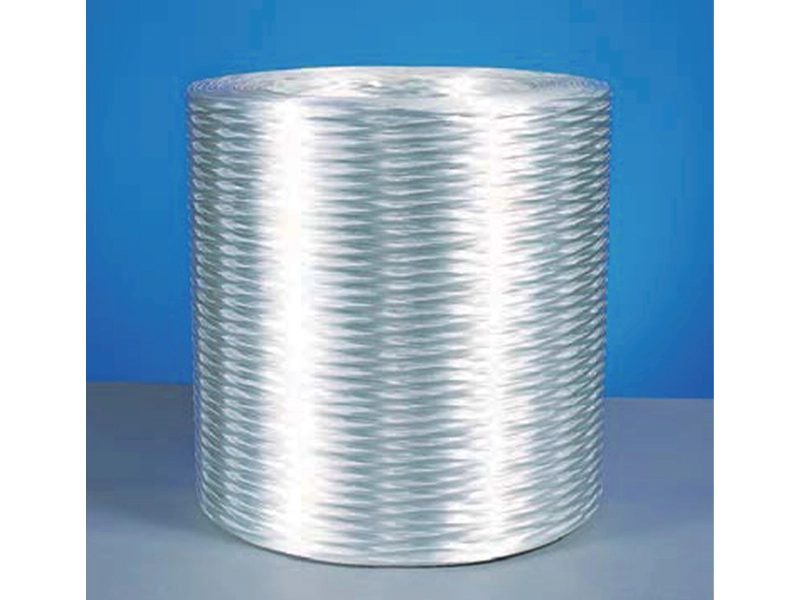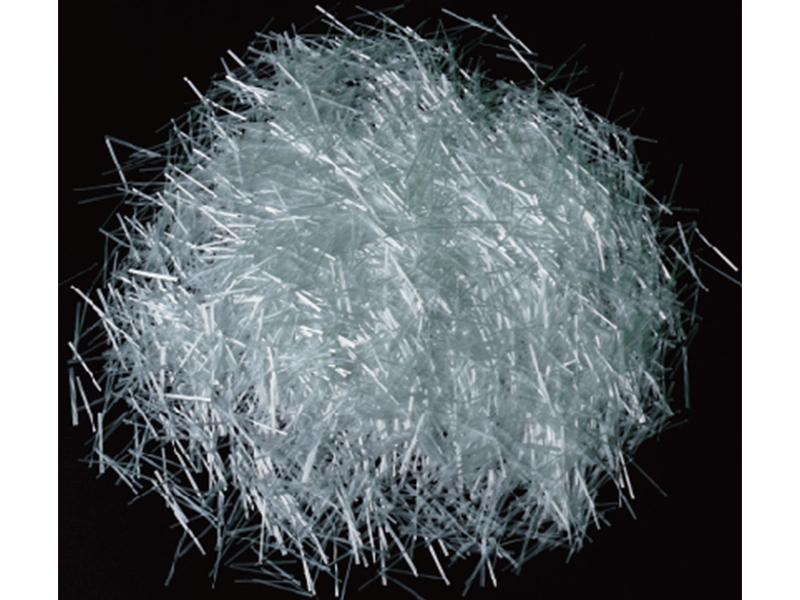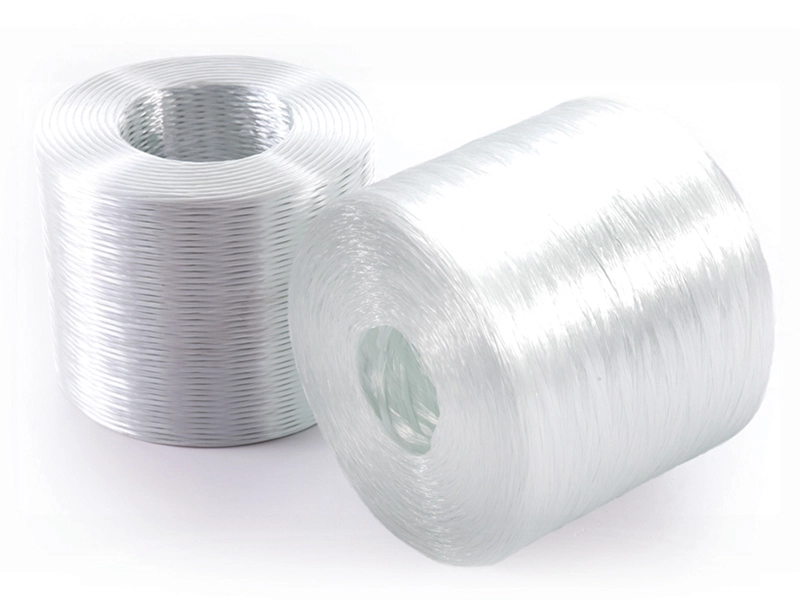SMC Roving refers to a type of chopped strand fiberglass roving specifically engineered for use in the Sheet Molding Compound (SMC) process — a high-volume method of producing fiber-reinforced plastic (FRP) parts. The SMC process is commonly used to manufacture automotive body panels, electrical enclosures, bathroom fixtures, and industrial housings.
Product performance introduction
SMC rovings are continuous glass fiber strands that are chopped and distributed uniformly in a resin paste to create semi-finished sheets. These sheets are then compression molded into complex components.
The selection of SMC roving is critical to ensuring the processability, mechanical properties, and surface finish of the final product. SMC roving must offer excellent chop ability, low static, uniform dispersion, good wet-out, and high compatibility with the resin matrix.
2. SMC Process Overview
The SMC process involves four major steps:
-
Compounding: SMC roving is chopped and spread onto a resin paste layer on a carrier film. A top film covers it, and the sheet is compacted to the desired thickness.
-
Maturation: The SMC sheet is rolled and aged (typically 24–72 hours) to increase its viscosity and molding consistency.
-
Molding: Pre-cut sheets are placed into a heated compression mold and cured under pressure.
-
Demolding: After a brief cure cycle, the molded part is removed, trimmed, and finished as needed.
3. Key Features of SMC Roving
-
Excellent Chop Ability: Clean and consistent chopping with minimal fuzzing.
-
Rapid Wet-Out: Ensures efficient resin impregnation during sheet formation.
-
Strand Integrity: Maintains structural performance during mixing and compaction.
-
Low Static: Prevents fly and strand tangling, ensuring clean sheet surfaces.
-
Consistent Fiber Length Distribution: Critical for uniform mechanical performance in molded parts.
-
Compatible Sizing: Ensures chemical bonding with polyester or vinyl ester resins.
-
High Strength Retention: Enables strong, lightweight final components.
-
Surface Finish: Helps in achieving Class A surface finishes for visible applications.
4. Applications of SMC Roving
4.1 Automotive
-
Hoods, trunk lids, roof panels
-
Structural supports, underbody shields
-
EV battery enclosures
4.2 Electrical & Energy
-
Transformer housings
-
Meter boxes
-
Cable trays
4.3 Sanitary Ware
-
Bathtubs, shower trays
-
Washbasin stands
-
Composite toilet seats
4.4 Construction & Infrastructure
-
Utility poles
-
Manhole covers
-
Decorative architectural panels
4.5 Industrial Equipment
-
Machine guards
-
Pump housings
-
Control panel boxes
5. Technical Requirements for SMC Roving
For optimal performance, SMC roving must meet several process-specific criteria:
| Requirement | Description |
|---|---|
| Tex or Yield | Typically 2400, 4800, 9600 tex. Heavier tex may be used for structural SMC. |
| Moisture Content | <0.10% to avoid porosity during molding. |
| Size Content | 1.2% – 2.0% depending on resin system. |
| Strand Count | Even strand distribution is critical to prevent defects. |
| Choppability | Clean cut with little to no fly, fuzz, or static. |
| Wet-Out Time | Fast wet-out for homogenous paste absorption. |
| Storage Stability | Good shelf life under recommended conditions. |
6. Technical Data Sheet (TDS)
Product Name: SMC Roving
Glass Type: E-glass (Electrical grade)
Product Form: Continuous strand roving on paper tube
Available Tex Sizes: 2400 / 4800 / 9600 tex
6.1 Physical and Chemical Properties
| Property | Typical Value | Test Method |
|---|---|---|
| Filament Diameter | 13–24 µm | ISO 1888 |
| Linear Density (Tex) | 2400 / 4800 / 9600 | ISO 1889 |
| Moisture Content (%) | ≤ 0.10 | ISO 3344 |
| Size Content (%) | 1.2 – 2.0 | ISO 1887 |
| Loss on Ignition (%) | 1.5 ± 0.2 | ISO 1887 |
| Sizing Compatibility | Polyester, Vinyl Ester, Epoxy | Internal Standards |
| Chop Performance | Excellent (Clean, minimal fuzz) | Internal Method |
| Static Buildup | Negligible | Observation/Rating |
6.2 Mechanical Properties (In Composite Form)
| Property | Typical Value | Test Method |
|---|---|---|
| Tensile Strength | > 2000 MPa | ASTM D638 |
| Flexural Strength | > 1000 MPa | ASTM D790 |
| Flexural Modulus | > 20 GPa | ASTM D790 |
| Impact Strength (Notched) | > 80 kJ/m² | ISO 179 |
| Density | 1.9 – 2.1 g/cm³ | ASTM D792 |
| Elongation at Break | 2.2 – 3.0% | ASTM D638 |
| Surface Quality | Class A finish possible | Visual ASTM D2563 |
7. Packaging and Labeling
Packaging
-
Wound on cylindrical paper tubes (3-inch diameter core)
-
Rolls weight: ~15–25 kg each (varies by tex)
-
Packed in individual PE bags, then stacked on pallets
-
Pallet size: 1.1m x 1.1m; 48–64 rolls per pallet
-
Pallet stretch-wrapped for stability and protection
Labeling
Each roll is labeled with:
-
Product name and grade
-
Tex/yield
-
Net weight
-
Batch number
-
Production date
-
Manufacturer and handling instructions
8. Storage and Shelf Life
-
Store in a cool, dry, and well-ventilated warehouse
-
Ideal temperature: 15–35°C
-
Relative humidity: ≤ 65%
-
Keep sealed in original packaging until use
-
Avoid direct sunlight or high-moisture environments
Shelf Life: 12 months from production date under standard storage conditions.
9. Handling and Processing Guidelines
-
Unwinding: Use creel systems designed for even tension distribution.
-
Chopping: Ensure blades are sharp and clean to minimize fuzz.
-
Sheet Formation: Maintain even resin flow and fiber dispersion during compounding.
-
Maturation: Allow proper aging time to stabilize viscosity.
-
Compression Molding: Match mold temperatures to resin cure characteristics; control cycle times carefully.
10. Health and Safety
Hazards
SMC roving is non-toxic but can cause mechanical irritation to skin, eyes, and lungs during processing.
Protective Measures
-
Wear gloves, goggles, and masks when handling
-
Use dust extraction systems in high-volume processing areas
-
Wash skin with soap and water after contact
First Aid
-
Eyes: Flush with water for 15 minutes
-
Skin: Rinse and apply moisturizer
-
Inhalation: Move to fresh air
Refer to the Material Safety Data Sheet (MSDS) for more details.
11. Quality Assurance and Standards
SMC rovings are typically certified to the following quality and compliance standards:
-
ISO 9001: Quality Management Systems
-
ISO 14001: Environmental Management
-
REACH and RoHS Compliance
-
UL, ASTM, or DIN Certifications (on request)
Routine QC checks include:
-
Moisture and size content analysis
-
Tensile testing
-
Choppability testing
-
Resin compatibility checks
12. Product Customization and Support
Leading manufacturers offer customization services including:
-
Tex range adjustments
-
Special sizing for unique resin systems
-
Surface treatment options
-
Pallet optimization for specific production lines
Technical Support Services Include:
-
On-site testing and troubleshooting
-
Process optimization
-
Composite design consulting
-
Mold flow simulation
13. Environmental Impact
-
Recyclability: Glass fiber scrap from SMC can be reused in filler-grade applications
-
Sustainability: E-glass is non-toxic and chemically inert
-
Compliance: Products meet global environmental regulations including RoHS, REACH, and Proposition 65
14. Conclusion
SMC roving is a high-performance fiberglass reinforcement product designed for the production of sheet molding compounds used across a wide array of industries. With its balance of excellent processability, mechanical strength, and surface finish potential, it enables manufacturers to produce lightweight, corrosion-resistant, and structurally sound components with repeatable quality.
SMC Roving
Series :
Fiberglass Assemble Roving >application
Automotive / Consumer Goods and Business Equipment / Sports and Leisure / Electrical and Electronics / Building and Construction / Infrastructure
Glass type :
E
Product Name :
SMC Roving
FAQ
Q :
Are you a factory? Where are you located?
A :
We are manufacturer of FRP grating and pultruded profiles, trader of FRP yarn materials. We are the largest distributor of China Jushi Co. We also sell products of several FRP yarn manufacturers. We are in Anhui, China.
Q :
What information is recommended for the inquiry?
A :
1. Which tex you need? 2. What the application you use it for? Or the tecnologh, is weaving, pultrusion or winding? 3. How many quantity do you need? 4. What resin do you combined for? Polyester resin or epoxy resin? 5. Do you need FOB or CIF price, if CIF, please tell us your port.
Q :
What's the MOQ?
A :
Usually 1 Ton
Q :
Package & Shipping
A :
Normal package:carton(Incuded in the unite price) Special Packge: need to charge according the actual situation. Normal shipping :your nominated Freight forwarding.
Q :
When can I offer?
A :
We usually quote within 24 hours after we get your inquiry. If you are very urgent to get the price pls call us or tell us in your email , so that we can reply you priority.
Q :
How do you charge the sample fees?
A :
If you need a samples from our stock, we can provide to you for free, but you need to pay the freight charge.If you need a special size, We will charge the sample making fee which is refundable when you place an order.
Q :
What's your delivery time for production?
A :
If we have stock , can delivery in 7 days ; if without the stock, need 7~15 days !
Other related products




